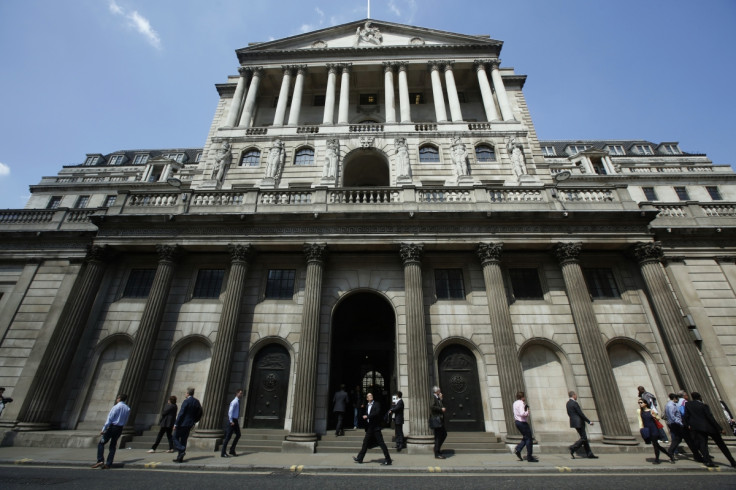UK Interest Rates Hike? Long Live the MPC's 'Groupthink' Ways

To rise, or not to rise: that is the question. A question the Bank of England's interest rate setting Monetary Policy Committee (MPC) keep answering with a resounding "no".
In the face of a strengthening economy, the decision to stick to their guns – to not raise interest rates from the historic low of 0.5% until early 2015 – had made the boffins at Threadneedle Street increasingly unpopular.
After the most recent decision to unanimously hold rates for the umpteenth time, the economists were accused of a heinous intellectual crime: groupthink.
"Groupthink prevails at the Bank of England," blasted a former MPC member and now PwC economist, Andrew Sentance.
"Still no MPC member prepared to vote for even a small rate rise, despite strengthening recovery."
Unemployment now at 6.5%, Consumer Price Index (CPI) inflation at a manageable 1.9% and Gross Domestic Product (GDP) at 0.8% – you can certainly see where Sentance is coming from.
A rise would be particularly good for savers who have endured years of poor returns on their nest eggs. Likewise, British businesses with significant pension deficits would also benefit.
According to research from PWC, Goldman Sachs and Mercer in 2013, the end of quantitative easing and a rise in interest rates could combat weighty deficits.
This a very important issue. FTSE350 pension deficits dropped by £1bn ($1.7bn, €1.2bn) to £112bn in June and over 12 months since June 2013 deficits have increased by £39bn to £112bn, according to Mercer.
By tackling these massive deficits, it means firms cannot spend more on growth and innovation – potentially scuppering a full recovery from the financial crisis of 2008.
But the MPC has been spooked by the UK's lousy wage growth and for good reason.
Weak Wages
Pay packets have not consistently outstripped inflation since 2008. So real pay has suffered as a result.
For example, the latest data from the Office for National Statistics revealed that wages including bonuses jump by just 0.3% in the three months to March.
Behind the pay and jobs data is the somewhat worrying reason as to how unemployment has fallen so quickly.
Firstly, more flexibility as there were more than 1.4 million zero-hours contracts across the UK in early 2013, according to the ONS.
And secondly, a surge in self-employment which has led to around a third of total growth in employment since 2010 being made up of people who work for themselves, according to the Trades Union Congress.
In other words, the UK's so called "miracle jobs boom" is propped up by more insecurity and weaker wages.
Elsewhere, the Resolution Foundation has backed the MPC's decision to hold interest rates at historic lows from another angle, housing.
The thinktank predicted that even the smallest of UK interest rate rises have the potential to double the number of households facing debt problems and create "mortgage prisoners".
Even if the BoE raised rates by a quarter of a percent, then by 2018, some 1.1 million households could be in "debt peril".
With an incredibly fragile labour market and the Resolution Foundation's research in consideration, let's hope the Threadneedle Street nine succumb to "groupthink" and vote "no" next time they discuss interest rate rises.
© Copyright IBTimes 2025. All rights reserved.






















